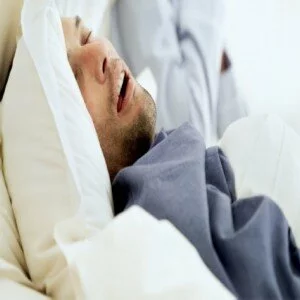According to the National Institutes of Health, the average adult sleeps less than seven hours per night. In today’s fast-paced society, six or seven hours of sleep may sound pretty good. In reality, though, it’s a recipe for chronic sleep deprivation.
There is a big difference between the amount of sleep you can get by on and the amount you need to function optimally. Just because you’re able to operate on seven hours of sleep doesn’t mean you wouldn’t feel a lot better and get more done if you spent an extra hour or two in bed.
While sleep requirements vary slightly from person to person, most healthy adults need between seven and a half to nine hours of sleep per night to function at their best. Children and teens need even more. A table of the average sleep requirement is shown below:
Newborn to 2 months old 12 – 18 hrs
3 months to 1 year old 14 – 15 hrs
1 to 3 years old 12 – 14 hrs
3 to 5 years old 11 – 13 hrs
5 to 12 years old 10 – 11 hrs
12 to 18 years old 8.5 – 10 hrs
Adults (18+) 7.5 – 9 hrs
Despite the notion that our sleep needs decrease with age, older people still need at least seven and a half to eight hours of sleep. Since older adults often have trouble sleeping this long at night, daytime naps can help fill in the gap.
There is a big difference between the amount of sleep you can get by on and the amount you need to function optimally. Just because you’re able to operate on seven hours of sleep doesn’t mean you wouldn’t feel a lot better and get more done if you spent an extra hour or two in bed. The best way to figure out if you’re meeting your sleep needs is to evaluate how you feel as you go about your day. If you have enough sleep hours, you’ll feel energetic and alert all day long, from the moment you wake up until your regular bedtime.
If you do not, then you may experience some or all of the symptoms below.
1. Need an alarm clock in order to wake up on time
Some people need no alarm to wake up for a normal day’s work but a lot do; they set the alarm for six or seven in the morning. This must be differentiated from a situation when you have to catch a flight. If you require a wake up alarm every morning to wake up for work at normal resumption time then you have some sleep deprivation.
2. Have a hard time getting out of bed in the morning
If you find it difficult in the morning to prepare for work or the day’s chores, then you are not having enough sleep. You need to sleep earlier so as to have a minimum of eight hours of sleep.
3. Feel sluggish in the afternoon
If you feel weak, sluggish and sleepy in the afternoon, then suspect that you are not having enough sleep.
4. Get sleepy in meetings, lectures, or warm rooms
One of the commonest sights on TV if you watch TV a lot is someone sleeping or dozing during a meeting, seminar or workshop. This is also quite common in class rooms. In class rooms it affects those who read late into the night or night clubbers; the latter, more in higher institutions.
The scenario mentioned above does not affect those who are not sleep deprived, if you doze off in meetings, in class; know you need to sleep more at night.
5. Get drowsy after heavy meals or when driving
It is not unusual to feel drowsy after a heavy meal owing to more activities in the stomach and intestines but when severe, then off course, it could be due to sleep deprivation. Driving is a very serious mental and physical activity, if you feel drowsy when driving, it means you have not had enough sleep, stop in the nearest safe place and take a nap, it may just save your life and the lives of others.
6. Fall asleep while watching TV or relaxing in the evening
A number of people fall asleep while watching TV or discussing with family members after work; this is quite common but then it is not good for family bonding. If you fall easily asleep while watching TV, then you are certainly not getting enough sleep and need to put in about 8-9 hours of quality sleep.
7. Feel the need to sleep more on weekends
Some people wake up very late on Saturdays and Sundays in an unconscious bid to catch up for lost sleep during the week; this does not quite redress the damage already caused by sleep deprivation during the week. If you sleep more on weekends, then know that you do not sleep enough during the week and make appropriate amendment.






No Comments